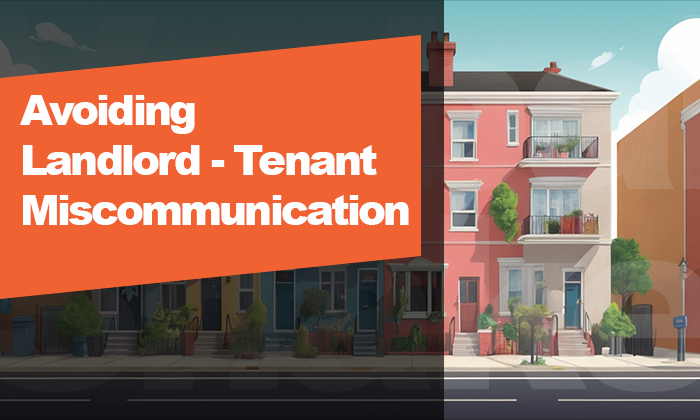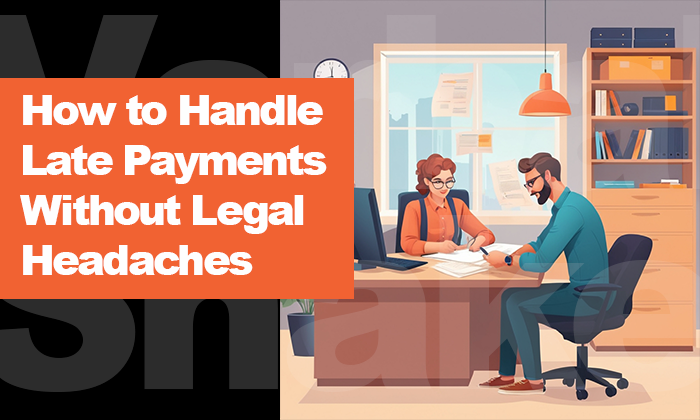A Landlord-Tenant Miscommunication That Could Have Been Avoided

John had been renting out properties for years without a hitch. His tenant, Lisa, was reliable—always paid rent on time, never caused any trouble. They had built a friendly, trusting relationship over the years.
Then came the phone call.
"Hey, I’m a little short this month. Can I pay rent a bit late?" Lisa asked, sounding genuinely stressed.
John, being the reasonable landlord he prided himself on being, replied, “Sure, just make sure it’s in by the 15th.”
Problem solved... or so he thought.
The Miscommunication That Changed Everything
The 15th came and went. No payment.
Confused, John sent a text:
"Hey, just a reminder, rent was due today."
Lisa replied almost instantly:
“Wait… I thought you said I could pay when I got my next paycheck on the 22nd?”
John was stunned. He distinctly remembered saying the 15th. But Lisa was just as certain she heard the 22nd.
There was no lease addendum. No written proof. Just a verbal agreement that was now a misunderstanding.
John could technically charge a late fee—it was clearly stated in the lease. But now he faced a dilemma:
- If he enforced the late fee, Lisa might feel unfairly punished and the relationship could sour.
- If he waived the fee, he’d set a precedent, and other tenants might expect the same leniency.
All because of a simple miscommunication.
Why Did This Happen?
This situation wasn’t about bad intentions. Lisa wasn’t trying to dodge rent, and John wasn’t trying to trick her.
The problem was poor communication:
- John’s “by the 15th” was meant as a firm deadline.
- Lisa interpreted it as a flexible arrangement until her paycheck on the 22nd.
Neither of them clarified the terms. Neither followed up in writing. And now, both were left frustrated and confused.
This isn’t just John’s story—it’s a situation landlords face all the time. Miscommunications like these are one of the most common reasons for disputes between landlords and tenants.
How This Could Have Been Avoided
This awkward situation could have been easily prevented with a few simple steps:
1. Always Put Agreements in Writing
Even small agreements, like allowing a late rent payment, should be documented.
- A quick text message could have clarified the date.
- Verbal Shake could have recorded the agreement, removing any doubt.
If John had sent a follow-up message like, “Just to confirm, rent is due on the 15th,” there would be no room for misinterpretation.
2. Be Crystal Clear with Dates and Terms
It’s easy to assume the other person knows what you mean, but assumptions lead to misunderstandings.
- “By the 15th” can sound flexible. “Rent is due on the 15th, and late fees apply after that” leaves no room for confusion.
Specific language matters. Being clear doesn’t make you a strict landlord; it makes you a professional one.
3. Confirm Understanding
A simple follow-up question can save you from weeks of frustration.
- John could have asked, “Just to confirm, you’ll be paying by the 15th, right?”
- If Lisa responded, “Yes, by the 15th,” they would have been on the same page.
- If she replied, “I get paid on the 22nd,” they could have discussed an alternative plan—this time with written confirmation.
How Verbal Shake Solves This Problem
Verbal agreements feel easy in the moment but become complicated when memories fade or interpretations differ.
That’s why we created Verbal Shake—to bridge the gap between informal verbal agreements and rigid contracts.
With Verbal Shake, you can:
- Record agreements quickly and easily, without drafting formal contracts.
- Send a clear summary of the agreement, so both parties are on the same page.
- Store all agreements securely, protecting you from disputes.
In John’s case, he could have used Verbal Shake to create a short agreement like this:
- Agreement: Lisa will pay rent by the 15th this month. Late fees will apply after the 15th.
- Confirmation: Lisa agrees by clicking a link, and both get a copy of the agreement.
If any disputes arose, John could simply reference the saved agreement—no ambiguity, no stress.
The Bigger Picture: Communication is Key
Landlord-tenant disputes often aren’t about bad intentions—they’re about miscommunication.
Whether it’s about late rent, maintenance requests, or moving out dates, clear and documented communication can save time, money, and relationships.
Verbal Shake makes that easy. It keeps things professional, friendly, and fair.
A Lesson Learned
John learned the hard way that being “nice” wasn’t enough. He had to be clear. And he had to protect himself legally while maintaining good tenant relationships.
This situation didn’t just cost him a late fee—it cost him peace of mind.
By using Verbal Shake, he could have avoided the awkwardness, the frustration, and the risk of losing a good tenant.
Want to Avoid These Miscommunications?
Verbal Shake is launching soon. It’s the easiest way to:
- Document verbal agreements quickly.
- Keep communication clear and professional.
- Avoid disputes and protect your rental income.
Want to be first to try it? Contact us below, and we’ll keep you in the loop.



